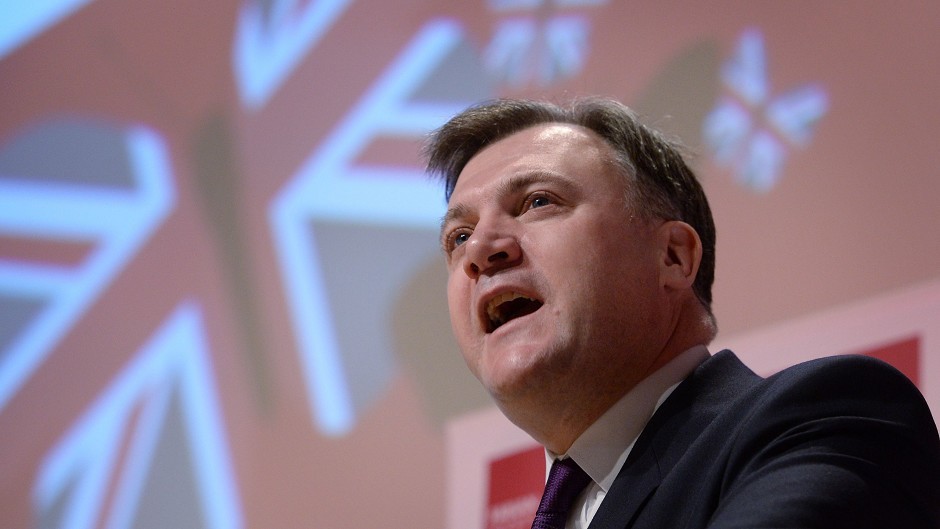Shadow Chancellor Ed Balls has hinted that he would resign before he would ever agree to a currency union with an independent Scotland.
Labour’s finance chief also said the issue was even “more clear cut” than the decision to stay out of the euro, and that opposition to a union with Scotland could be included in his party’s next manifesto.
The SNP hit back last night, saying the argument was “fatally undermined” by the failure of Mr Balls former boss, Gordon Brown, to back his joint stance on the pound with the Conservatives and Liberal Democrats.
Mr Balls, who could become chancellor during the independence negotiations if Labour wins next year’s election, was giving evidence to the Scottish affairs committee yesterday.
Asked if he would resign if a future Labour prime minister decided to offer currency union to Scotland, Mr Balls said: “I could not imagine being part of the start of that negotiation, let alone the end.”
He recalled the “five economic tests” which Mr Brown had said would have to be met before Britain would enter the euro.
“We looked really hard at this issue in 2003, and we said we must make the decision around the national economic interest – make a proper long-term economic assessment,” he said.
“The decision we’re making here is of a similar economic magnitude. I actually think the issues are more clear-cut for the rest of the UK and for Scotland as to why joining a single currency on this basis would be flawed, a mistake and dangerous.”
Asked if rejecting a currency union could be included in the Labour manifesto, Mr Balls said: “If it required, so people totally understood it, a manifesto commitment, it will be in the manifesto, absolutely.”
A spokesman for Scottish Finance Secretary John Swinney said: “An independent Scotland will keep the pound, as confirmed by the UK Government minister caught telling the truth by admitting that ‘of course’ there will be a currency union.
“And Ed Balls’ claims have been fatally undermined by his old boss Gordon Brown, who has pointedly refused to back his decision to join with the Tories and Lib Dems on this issue, and has attacked the Westminster parties’ approach to Scotland on currency as ‘bullying’.”
